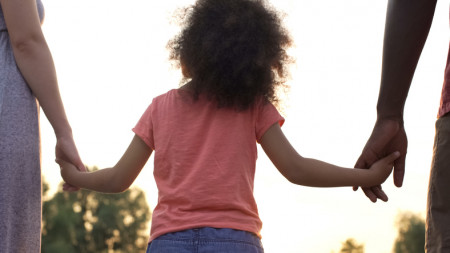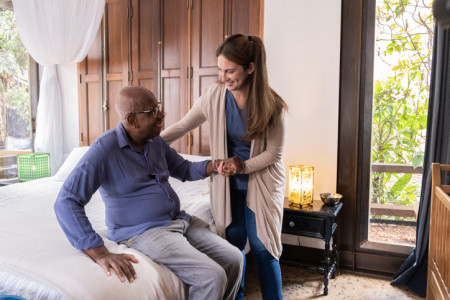
University of Bolton, Deane Road, Bolton. BL3 5AB
Tel:
Email:


“At the University of Bolton, we take great pride in providing a quality, supportive learning environment for our students.”
Professor George E Holmes DL | President & Vice Chancellor
“...tutors are very supportive and you’re not just a student ID number, at this university you are an individual with a name.”
Ellisse Vernon | BSc (Hons) Adult Nursing
Back to menu
Back to menu
Study with an Off-Campus Partner
Back to menu
Back to menu
University of Bolton, why we are the right choice
Location - Bolton, Greater Manchester

25/10/2022
Safeguarding training is an important part of everyday life and it forms the backbone of a solid strategy for protecting every vulnerable party in the health and social care industry. However, it is important to understand that there are best practices for different types of people, and understanding these practices are key for a successful health and social care graduate.
At the University of Bolton, we want to help you make a real difference to people’s lives. Let’s explore some of the best practices to consider when training to safeguard both children and adults, and how our BSc (Hons) Health and Social Care degree at Bolton University can give you a deeper understanding of a rewarding career in this vital sector.
The Impact of a Health and Social Care Degree in Protecting Society
Learning the skills and necessary training to deliver the highest levels of health and social care services can help a lot to protect children, young people, and vulnerable adults. Currently, the biggest challenge facing the UK health and social care sector is the NHS and social care workforce shortage in England. In the NHS alone, there were 110,000 unfilled vacancies from October to December 2021, and this is a trend that has continued throughout 2022 as the UK health industry continues to recover from the devastating supply and demand effects caused by the coronavirus pandemic.
Simply, this means one thing. There’s never been a better opportunity to get a health and social care degree; starting your journey to helping an industry in vital need of passionate graduates looking to make their mark in a rewarding industry.

Safeguarding Children
To define the government’s views of what safeguarding children means, it is “the process of protecting children from abuse, neglect, preventing impairment of their health and development, and ensuring they are growing up in circumstances consistent with the provision of safe and effective care”.
Focusing on supporting families and carers for effective parenting, fostering, or childcare, safeguarding children is an incredibly sensitive topic and there are many processes and considerations to put into place to do this effectively. From being properly DBS-checked to just be able to legally work around children, this incurs the sheer importance of safeguarding.
There are several practices that must be put into place to protect them. First and foremost, a robust policy for safeguarding needs to be designed and implemented in the workplace:
- Ensuring a strong adherence to the legal rules and regulations to make sure that childcare environments are safe and secure to protect children
- Upholding a child’s physical health and mentally healthy lifestyle
Secondly, any decisions which are made by practitioners for the sake of safeguarding children need to be not only proportionate to the situation at hand, but also must consider the welfare of the children. Protecting their right to privacy where possible, only sharing relevant information for safeguarding purposes.
Safeguarding Vulnerable Adults
When we talk about safeguarding adults, it is important to understand what is meant by vulnerable. It stretches much further than just the elderly. Vulnerable adults can be those who are weak, frail, immobile, living with learning disabilities or various mental health needs. Anyone who is regarded to need help or care. It is important to recognise that a lot of the basic ideas are the same as safeguarding children in that the welfare of the adult is designed to be at the centre of all decision-making.
 However, there are other important rules to follow to ensure that vulnerable adults are being safeguarded effectively. For this, it is important to take the Social Care Institute for Excellence (SCIE) into account. This is because, according to them, efficient safeguarding depends on the fulfilment of the following areas:
However, there are other important rules to follow to ensure that vulnerable adults are being safeguarded effectively. For this, it is important to take the Social Care Institute for Excellence (SCIE) into account. This is because, according to them, efficient safeguarding depends on the fulfilment of the following areas:
- Accountability
- Empowerment
- Partnership
- Prevention
- Proportionate Responses
- Protection
Where possible, there is a focus put on empowering adults to make their own decisions about life by giving them the information and tools to do so. This safeguarding takes a proactive approach to helping people make key decisions. At the same time, normal safeguarding measures must be followed.
Why Study Health and Social Care at Bolton?
Health and social care equate to two of the most important aspects of UK health services; so with a health and social care degree, you need to be sure that you are making the right decision about where to study.
When it comes to studying BSc (Hons) Health and Social Care at Bolton University, students gain access and support to our passionate lecturers and award-winning Student Services Team from day one to the day the leave the Bolton family; and this doesn’t mean the day they graduate!
Our health and social care course has been designed to give students a well-rounded education and the skills to make a positive impact in their community. From our students having access to our £31 million Bolton One building, it means they can study in our state-of-the-art Clinical Simulation suites; a purpose-built study environment for our students that mimics the professional environment.
Our health and social care lecturers deliver a quality teaching experience that not only we are proud to offer, but one that our students receive genuine value from. In our opinion, lectures should be all about the student, providing them with a positive learning experience that supports their needs. That's one of the reasons why we keep our class sizes to just 20-30 students a class; providing our students with more one-to-one time, meaning our lecturers get to know them by their name, not their student number.
#UniAsItShouldBe is about giving students the quality education they deserve to ensure that not only do they enjoy their university experience, but they also fulfil their career ambitions.
Does BSc (Hons) Health and Social Care at the University of Bolton sound like the right place to study? To view our course in more detail, click here.
You can also speak to a member of our team by contacting us at enquiries@bolton.ac.uk or calling us on 01204 903807; find out why our students love studying here!